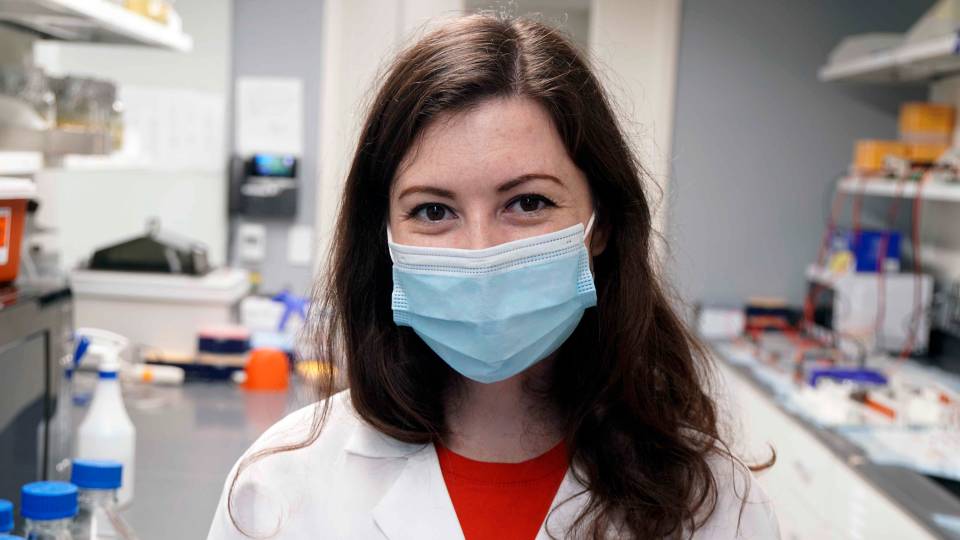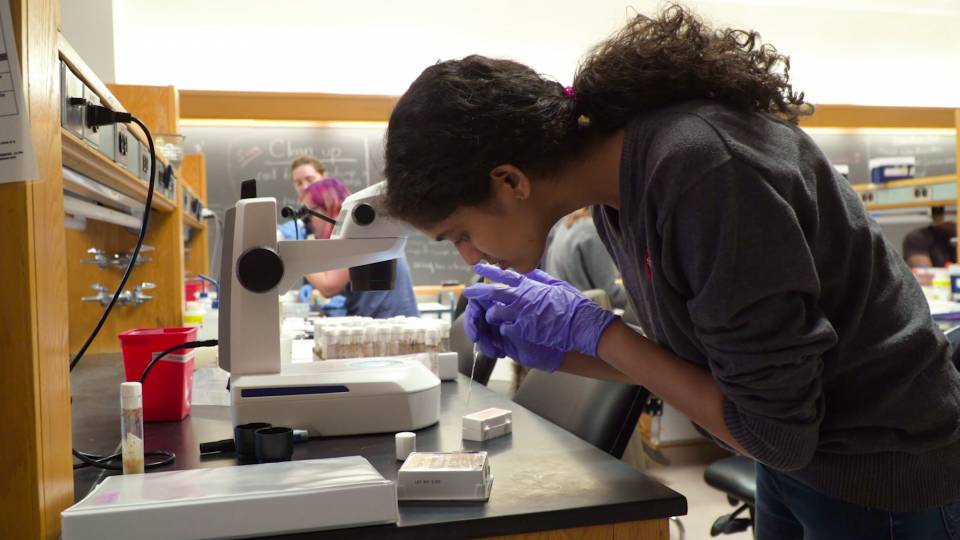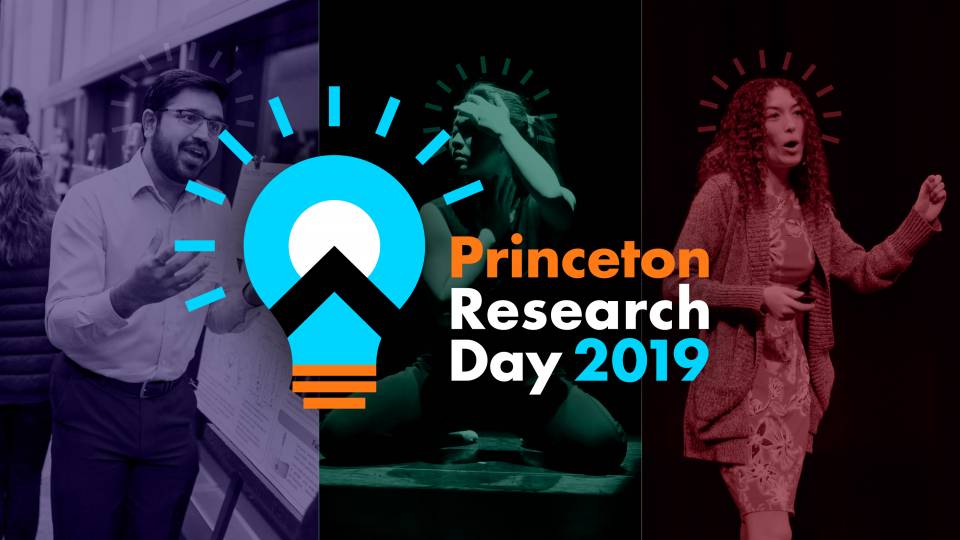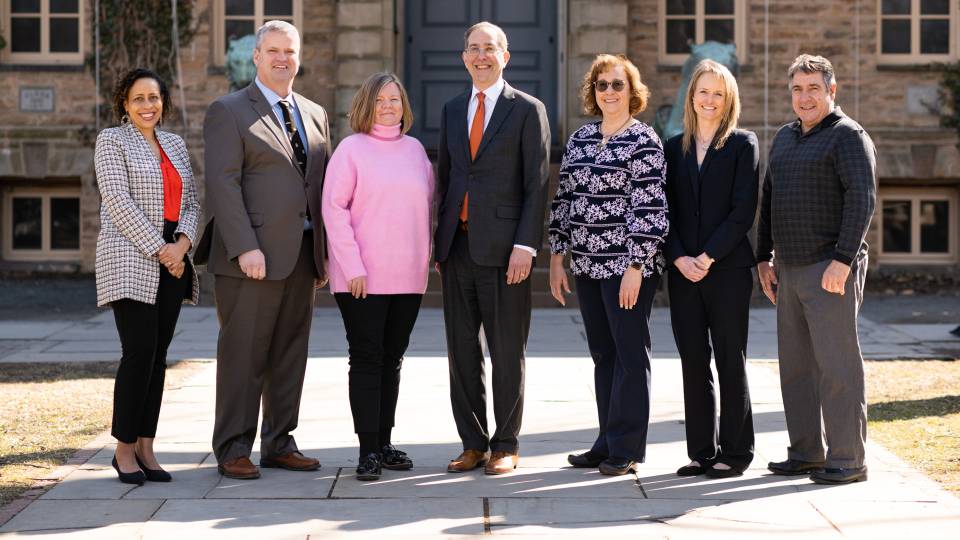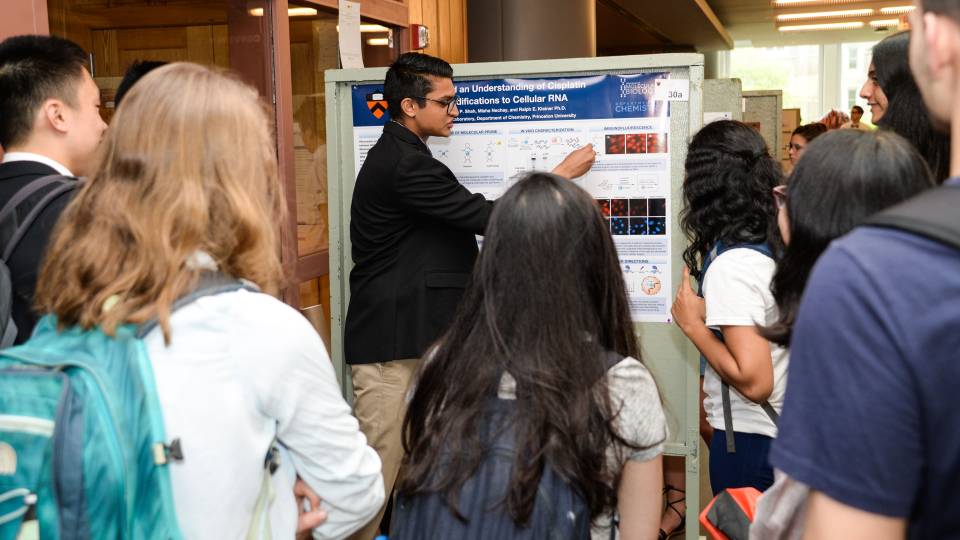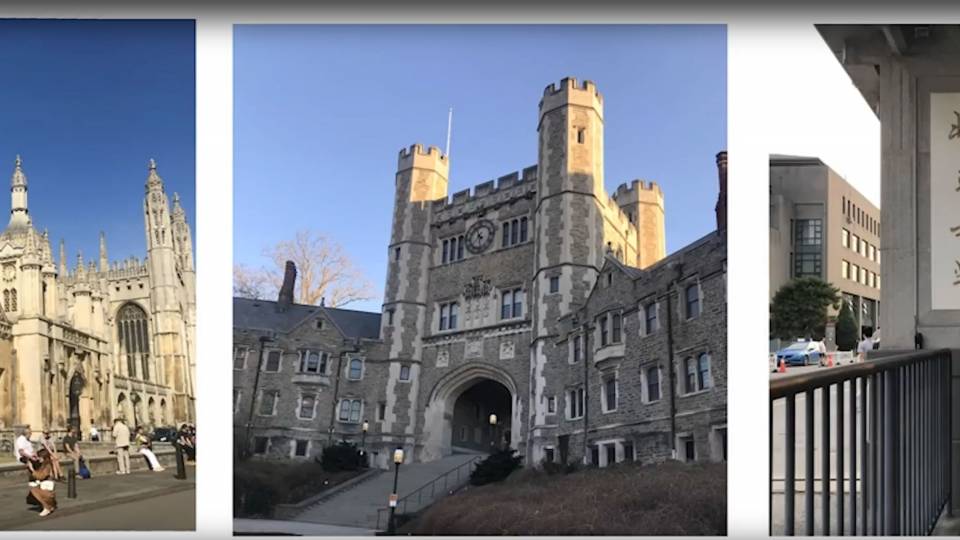Research is an intense activity that can be challenging to describe. Connecting with others on what a researcher does and why it is important is a goal of Princeton researchers — undergraduates, graduate students and postdocs — as they present their work to the public at the fifth annual Princeton Research Day.
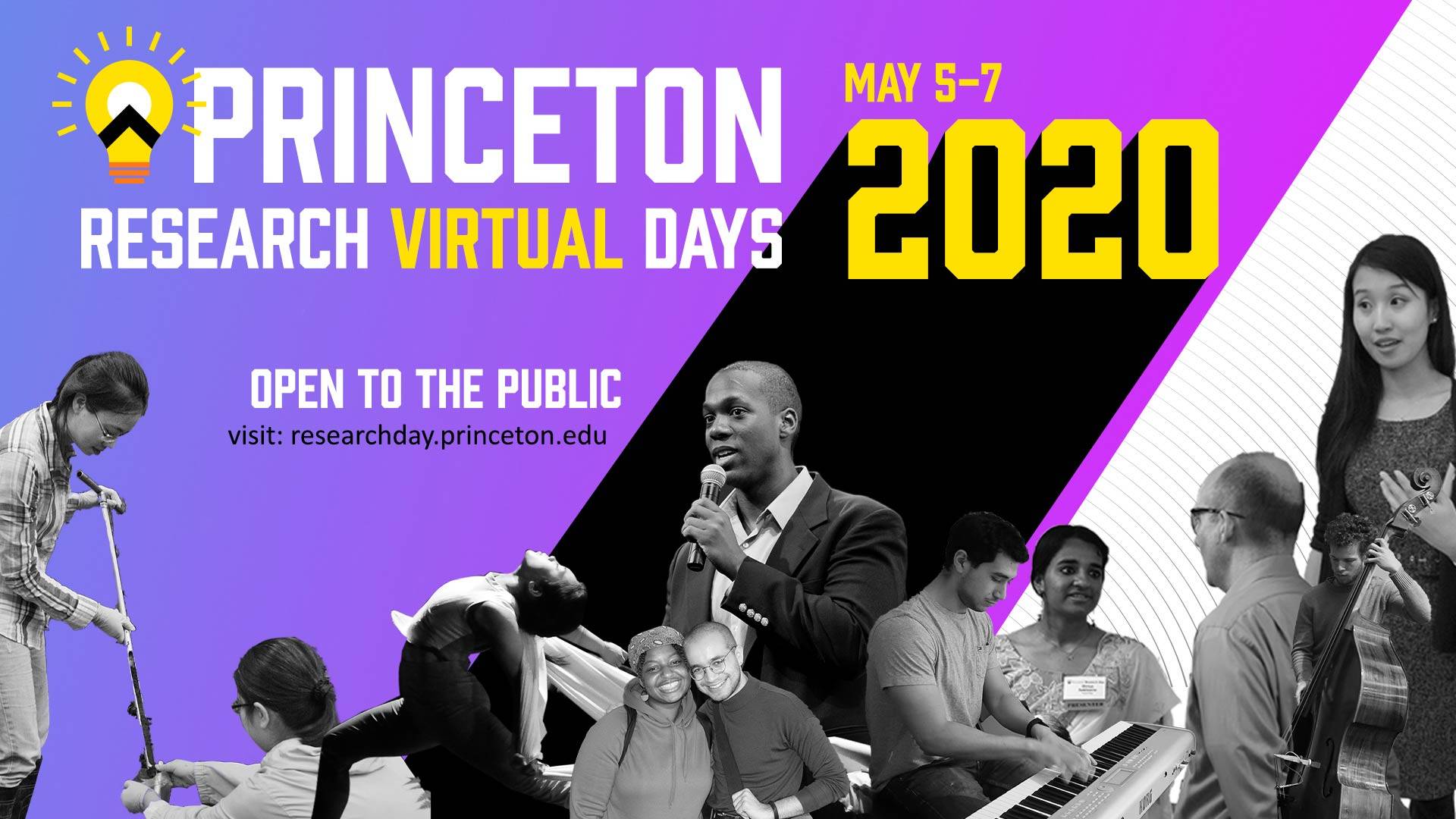
This year due to the COVID-19 pandemic, Princeton Research Day will be held as a series of three early evening webinars May 5-7 from 5:30-6:30 p.m. (Eastern). The presentations will showcase the diversity of research projects under the themes of “Reinterpretation,” “Environment” and “Wellbeing.”
Five research projects will be presented in each of the webinars. Each presentation includes a video. While more videos from researchers were submitted than could be shown during the evening webinars, all videos will be published later this month and promoted online.
Topics to be presented include:
• Power of the River: Introducing the Global Dam Tracker
• Trauma Exposure and Mental Health Outcomes among Central American and Mexican Children Held in Immigration Detention at the U.S.-Mexico Border
• Developing Models for Predictive Analytics in Track and Field
• Soft Eversion Robots in Application of Minimally Invasive Subsurface Drip Irrigation
Register to Attend:
Reinterpretation: Tuesday, May 5, 2020 from 5:30 to 6:30 pm. This theme is a reinvestigation or a new way of looking at a traditionally held belief or finding a new way of interpreting information. Hosted by Christine Murphy, assistant dean for academic affairs in the Graduate School, with welcome by Sarah-Jane Leslie, dean of the Graduate School.
Environment: Wednesday, May 6, 2020 from 5:30 to 6:30 pm. Hosted by Pascale Poussart, director of the Office of Undergraduate Research, with welcome by Jill Dolan, Dean of the College.
Wellbeing: Thursday, May 7, 2020 from 5:30 to 6:30 pm. Hosted by Karla Ewalt, associate dean for research, with welcome by Pablo Debenedetti, dean for research.
“In planning for Princeton Research Day this year, we set as a goal increasing the reach to the public through livestreaming,” said Ewalt. “Little did we know what was in store! We felt this was an important occasion to bring together again students, postdocs, researchers, faculty, staff, families and the community though many of us have dispersed to our homes. PRD is an event designed to leverage the power of connection to make meaning through sharing ideas.”
“I signed up for Princeton Research Day because I am excited by this wonderful opportunity to present my thesis research to the broader community of Princeton scholars, as well as to learn how gifted individuals across a variety of fields conduct research and present their findings to a wider audience,” said history concentrator Will Brown, Class of 2020, whose topic is “From Victory through Brexit, Winston Churchill’s 1940 Speeches and the Invention of Memory.”
Brown said that along with sharing his fascination for Churchill’s famous speeches, he hopes to “communicate that the reinterpretation of history holds very real ideological and practical consequences, sometimes beneficial but often detrimental, for societies as they seek to navigate moments of crisis, upheaval or ‘fissure points’ such as Brexit.
“I am very grateful to all those who have worked hard to make Princeton Research Day possible in virtual form; from a researcher’s perspective, adaptability is a crucial tool of the trade when working with the sources we have at our disposal at any given time, and I commend everyone involved with this event — presenters and organizers alike — for their admirable display of flexibility,” he said.
“Princeton Research Day gives me a refreshing opportunity to speak with folks totally outside of my field and school who offer interesting, new perspectives on my scientific research,” said Hayat Adawi, a doctoral candidate in chemical and biological engineering. “I hope that our audience enjoys hearing about how chemical engineering researchers like myself begin tackling macroscopic issues like sustainability by delving into the fundamentals of chemical processes at the molecular level.”
Benjamin Bratton, an associate research scholar in molecular biology who is giving a presentation on the Helicobacter pylori bacterium, said he’d heard about Princeton Research Day in the past “as an inspiring celebration of research from diverse backgrounds and career stages.”
He noted that in his field as in many others, “the presentation of research comes months or years after the work itself is performed.” This year, even though online, Princeton Research Day will allow Bratton and other researchers “to share with the greater Princeton community in the successes we’ve had, not because we are the best, but because we strive to bring about the best for Princeton and the world,” he said.
Andrew Finn, a graduate student in English who is a University Administrative Fellow, worked to organize the program this year. “I was interested in working on this project as a University Administrative Fellow because I believe that interdisciplinarity and collaboration are core values of the Princeton academic experience, and Princeton Research Day has always provided an essential platform for celebrating this rich interconnectivity and engagement,” Finn said.
“In moving to a virtual space, I was driven to help give these scholars’ important work the widespread recognition and expanded reach it deserves because continuing to foster those opportunities and values, even when we must do so across a great distance, is paramount to Princeton’s intellectual life,” he said.
Princeton Research Day is a collaborative initiative between the office of the Dean of the College, the Dean of the Graduate School and the Dean for Research, with support from the Office of the Dean of the Faculty and the Office of the Provost.
